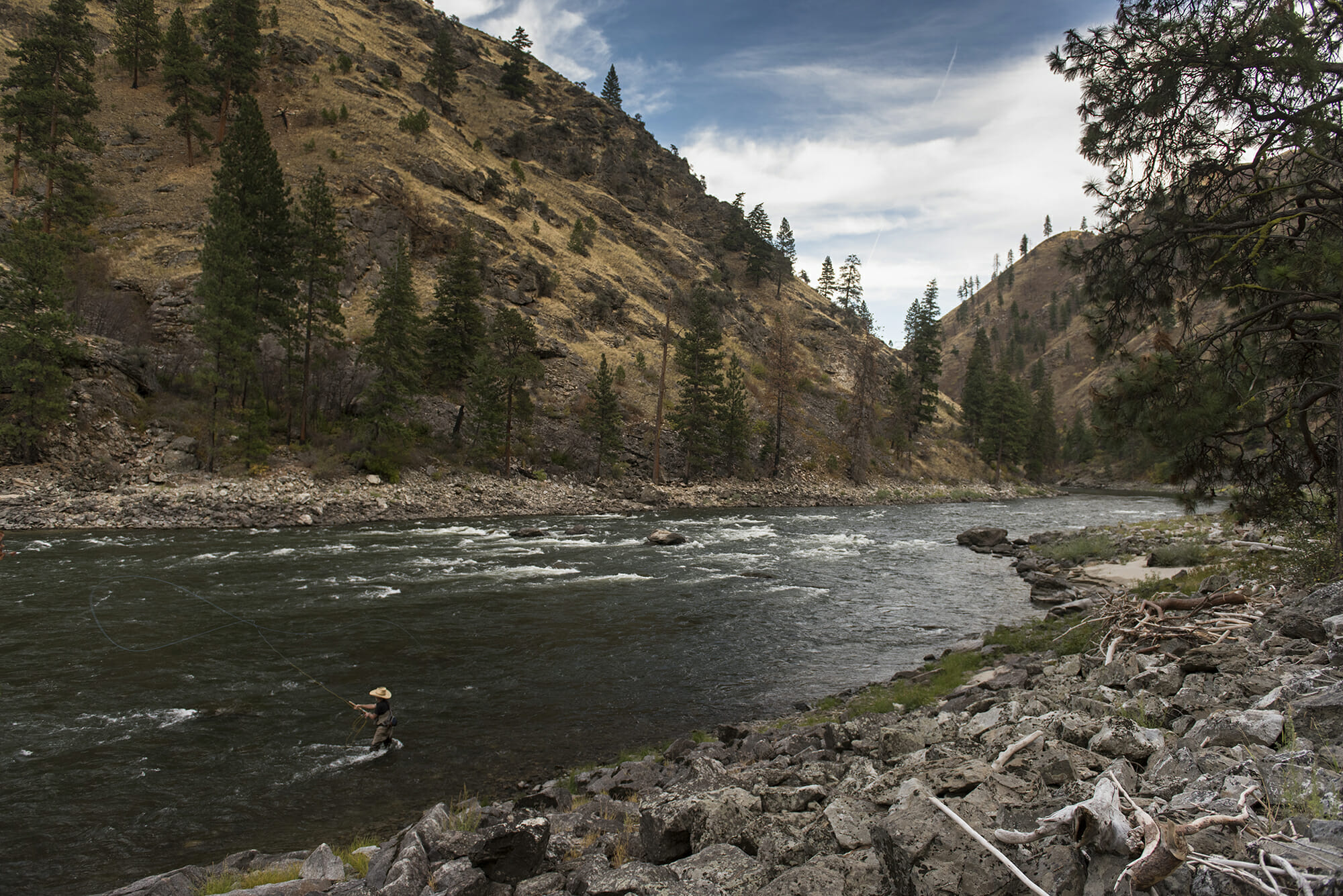
FOR IMMEDIATE RELEASE
February 7, 2021
Contacts:
- Chris Wood, President and CEO, Trout Unlimited, chris.wood@tu.org
- Rob Masonis, VP for Western Conservation, Trout Unlimited, rmasonis@tu.org
- Greg McReynolds, Snake River campaign director, Trout Unlimited, gmcreynolds@tu.org
Comprehensive proposal would remove four lower Snake River dams and invest in the Northwest region’s energy, transportation, and agricultural infrastructure
BOISE, Idaho.—U.S. Rep. Mike Simpson (R-ID) announced a sweeping infrastructure proposal today to recover the Northwest’s most prolific salmon and steelhead fishery.
Simpson’s proposal calls for removing the lower four Snake River dams and making significant investments to address related energy, transportation, and agricultural needs in the region.
“There are those who talk and those who lead. We applaud Congressman Simpson for his bold leadership to mobilize support in Congress for a comprehensive and lasting plan that would make significant investments in the Northwest economy while recovering the salmon and steelhead that define the region,” said Chris Wood, president and CEO of Trout Unlimited. “Snake River salmon and steelhead are remarkable fish. All we need to do is give them half a chance, and they will thrive for generations to come.”
The Simpson proposal would invest in Northwest infrastructure with an emphasis on rail transportation; carbon-free energy to replace hydropower that would be lost to the removal of the dams; irrigation systems; and lands and waters damaged when the dams were built decades ago.
“Snake River salmon and steelhead are more than an economic engine for the region,” said Rob Masonis, Trout Unlimited’s vice president for western conservation. “They are the lifeblood and first food of the native peoples who have lived in the Snake River basin for millennia, and a critical source of nutrients for the entire ecosystem.”
Snake River salmon and steelhead are on a path to extinction. Nearly 50 percent of the anadromous fish habitat in the lower 48 is in the state of Idaho, but without a free-flowing lower Snake River, salmon and steelhead can’t make productive use of it. Historically, the Snake River basin produced nearly half of the spring/summer Chinook salmon and summer steelhead in the Columbia system. But since the lower four Snake River dams were completed in the late 1970s, wild salmon and steelhead returns to Idaho have crashed.
The scientific consensus is that smolt-to-adult return ratios (SARs) must be at least 2 percent for Snake River adult salmon and steelhead to avoid extinction. To rebuild stocks, that percentage must be 4 to 6 percent. With the lower four Snake River dams in place—and despite almost $17 billion and 45 years of mitigation efforts, habitat restoration, and increased hatchery production—salmon and steelhead SARs have failed to reach 2 percent.
“What these fish need to thrive is safe passage to abundant, healthy, and diverse habitat,” said Helen Neville, senior scientist at Trout Unlimited. “The science clearly demonstrates that removing the lower Snake River dams will vastly increase the number of salmon and steelhead returning to the Snake River basin, which contains fully half of the coldwater habitat available to these fish across their entire native range in the continental United States.”
###
Trout Unlimited is the nation’s oldest and largest coldwater fisheries conservation organization dedicated to conserving, protecting and restoring North America’s trout and salmon and their watersheds. Across the country, TU brings to bear local, regional and national grassroots organizing, durable partnerships, science-backed policy muscle, and legal firepower on behalf of trout and salmon fisheries, healthy waters and vibrant communities.

